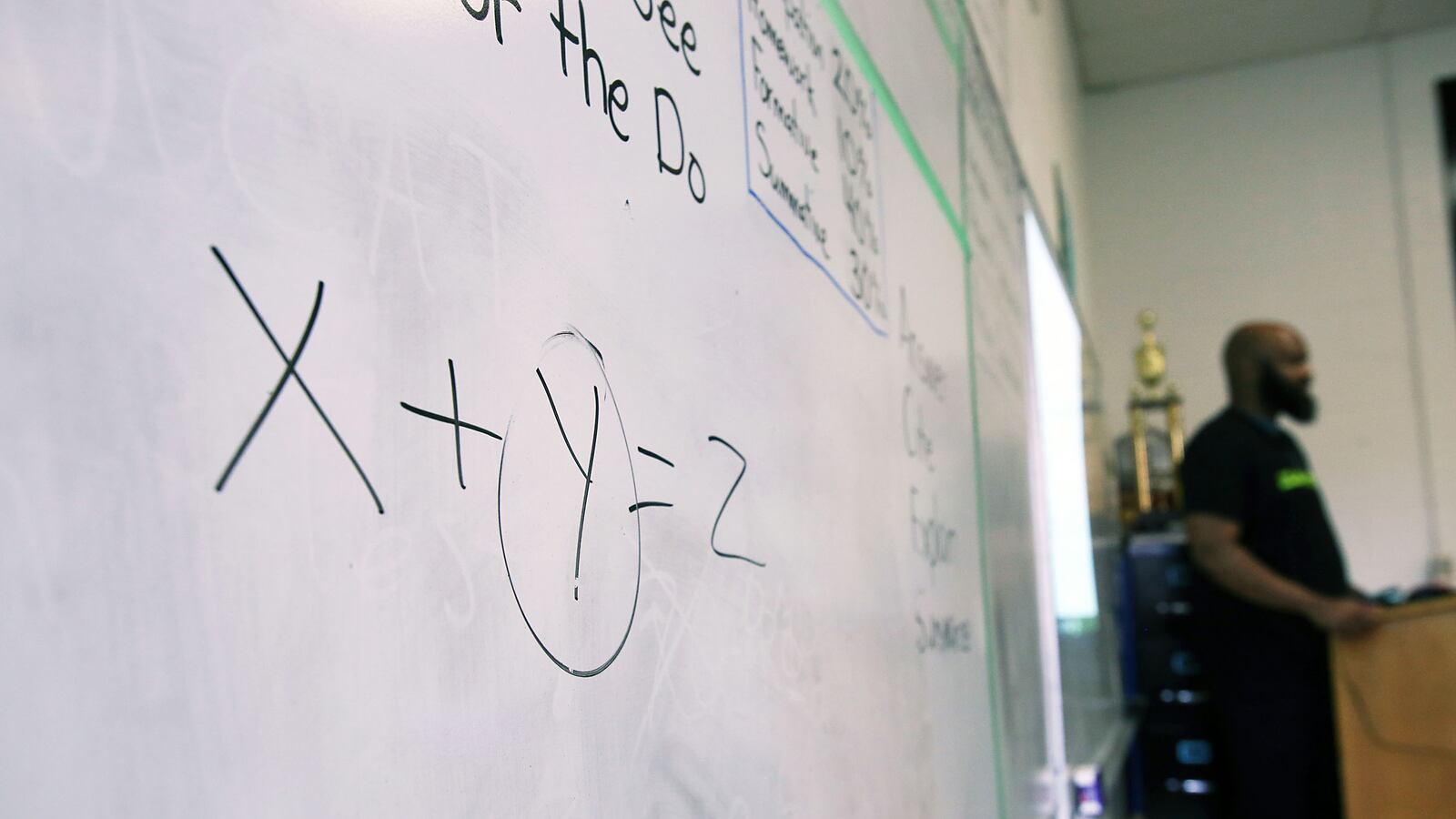A third of Tennessee teachers say they would leave the profession for a higher-paying job and also would choose a different career if given a do-over, according to the results of a new statewide survey.
At the same time, three-fourths of teachers who responded to the survey reported feeling positively about the way their school runs, and nearly 90% said they would recommend their school to parents.
Results from the latest Tennessee Educator Survey, released late Wednesday, are both troubling and encouraging in a reform-minded state that has fostered gains on national student tests but also is seeing a gradual decline in its number of teacher candidates. Research is clear that effective teachers are the most important factor contributing to student achievement.
Despite significant state investments to increase teacher pay, including $71 million this year under Gov. Bill Lee, Tennessee’s average annual classroom salary stands at $53,980, well below the national average but in the top half of states in the Southeast. Minimum pay is $36,000 with a bachelor’s degree and no teaching experience.
But pay is just one factor in teacher satisfaction, and the survey offers clear, actionable lessons for school leaders to retain their top teachers.
“They’re more likely to stay if their planning time is protected, student discipline is being handled effectively by their administrators, and there’s an open and trusting culture with school leadership,” said Erin O’Hara, executive director of the Tennessee Education Research Alliance at Vanderbilt University, which conducted the survey in partnership with the state Education Department.
Many teachers, especially in urban districts, reported they didn’t get sufficient individual or collaborative planning time on a regular basis. But the more they received, the happier they were. Two and a half to three hours of protected individual planning time a week seemed to satisfy most teachers.
“I would rather have more [planning] time than any other resource,” one teacher commented anonymously.
About 69% of teachers surveyed said their administrators managed behavioral issues well — allowing instructional time to be maximized in the classroom — and more than three-fourths reported feeling comfortable raising issues with their school leaders.
But 45% — the same percentage as last year — said they still felt pulled in many directions in terms of what to teach and how to teach it.
Results of the ninth annual survey are especially important because more educators participated than ever before. More than 45,000 teachers and administrators, or about 62%, weighed in, compared with 58% last year and 25% in 2012 when the first survey was conducted across the state’s public schools.
“Policy folks want to hear from teachers; they want to know what teachers think,” O’Hara said.
Higher participation adds credibility to the data, which state officials say is critical to Tennessee’s ongoing research and strategies on issues such as teacher and leader effectiveness, development, and retention.
“I’ve personally reviewed the comments that were submitted, and we are already using this feedback to drive decisions at the department,” Education Commissioner Penny Schwinn said in a statement.
The latest survey, conducted this spring in the weeks prior to state testing, continued to track feedback on hot-button issues like TNReady assessments and teacher evaluations. Responses to those questions deviated little from last year.
Only 29% of teachers said information generated by the state’s annual TNReady tests was worth the investment of time and effort. And about three-fourths said their annual evaluations helped them to be a more effective teacher, indicating that educators were continuing to warm to the state’s controversial rating system.
However, significantly fewer school administrators felt positively toward TNReady when compared with the previous year. Only 47% of principals and assistant principals saw the test as a good investment, down 11% from 2018.
Recruiting, retaining, and developing effective teachers have become front-burner issues in Tennessee as droves of experienced educators are expected to retire in the next decade and districts struggle to find enough teachers for special education, English language learners, and high school math and science. Rural districts face unique challenges in attracting high-quality faculty. Another concern is lagging diversity among teacher candidates, only 15% of whom are people of color, compared with 35% of the state’s student population.
“It’s definitely a challenge for us,” acknowledged Rep. Mark White, the Memphis Republican who chairs the House Education Committee. “It’s regretful that one out of three educators would leave the profession for higher pay, but we’ve got to keep moving the ball on standards and accountability. The world is changing fast and the demands are high in every field, education included.”
You can find the full results of the 2019 survey here and previous surveys here.

